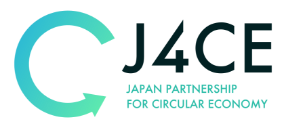Lithium Supply Chain in the Next Mobility Strategy of Toyota Tsusho
[Company / organization] Toyota Tsusho Corporation
Time started (or to be started)
With an eye towards acquiring lithium resources, Toyota Tsusho began to conduct studies on global mining reserves in 2008, just as the popularity of lithium-ion batteries began to surge. The research led Toyota Tsusho to focus on Salar de Olaroz salt lake in Argentina. Salar de Olaroz was undeveloped, promised high levels of lithium in the brine with a low amount of impurities, and offered an infrastructure needed for production and transportation.
In September 2012, Toyota Tsusho acquired a 25% stake in the project, the plant opened in December 2014 to start full-scale lithium production.
Technology and business model
From the perspective of mobility, the widespread uptake of new energy vehicles is a key factor to reduce CO2 emissions and combating climate change. As a result, the production of lithium-ion batteries is increasing around the world. Toyota Tsusho takes part in the upstream domain of such to ensure a stable supply of lithium, which is one of rare resources.
In addition to supplying lithium carbonate to meet the increasing demand for automotive rechargeable batteries, as the capacity of rechargeable batteries is expected to increase in conjunction with innovation in lithium battery technology, Toyota Tsusho has also decided to construct a production in Naraha-machi, Fukushima Prefecture, and supply framework for the raw material, lithium hydroxide.
As a stable supplier in the lithium market, we will not only improve the value of our business, but also secure stable lithium resources by acquiring 100% of the sales rights to lithium carbonate and contribute to the spread of next-generation automobiles. In addition to expanding our business, we will promote the development of resources as an upstream sector to contribute to further development of downstream sectors, with the goal of acting as a bridge between the development of both countries.
Achievements and goals
We decided to expand production capacity from 17,500 tons/year to 42,500 tons/year to achieve increased production and stable supplies to meet the rising demand for lithium. Expanded production is scheduled to begin in 2022.
We are also focusing on the battery-to-battery resource recovery by promoting the 3Rs (Rebuild, Reuse, and Recycle) that match the battery characteristics of in-vehicle batteries, including lithium-ion batteries.
Reference URL
https://www.toyota-tsusho.com/english/about/project/04/
https://www.toyota-tsusho.com/english/press/detail/190412_004576.html

